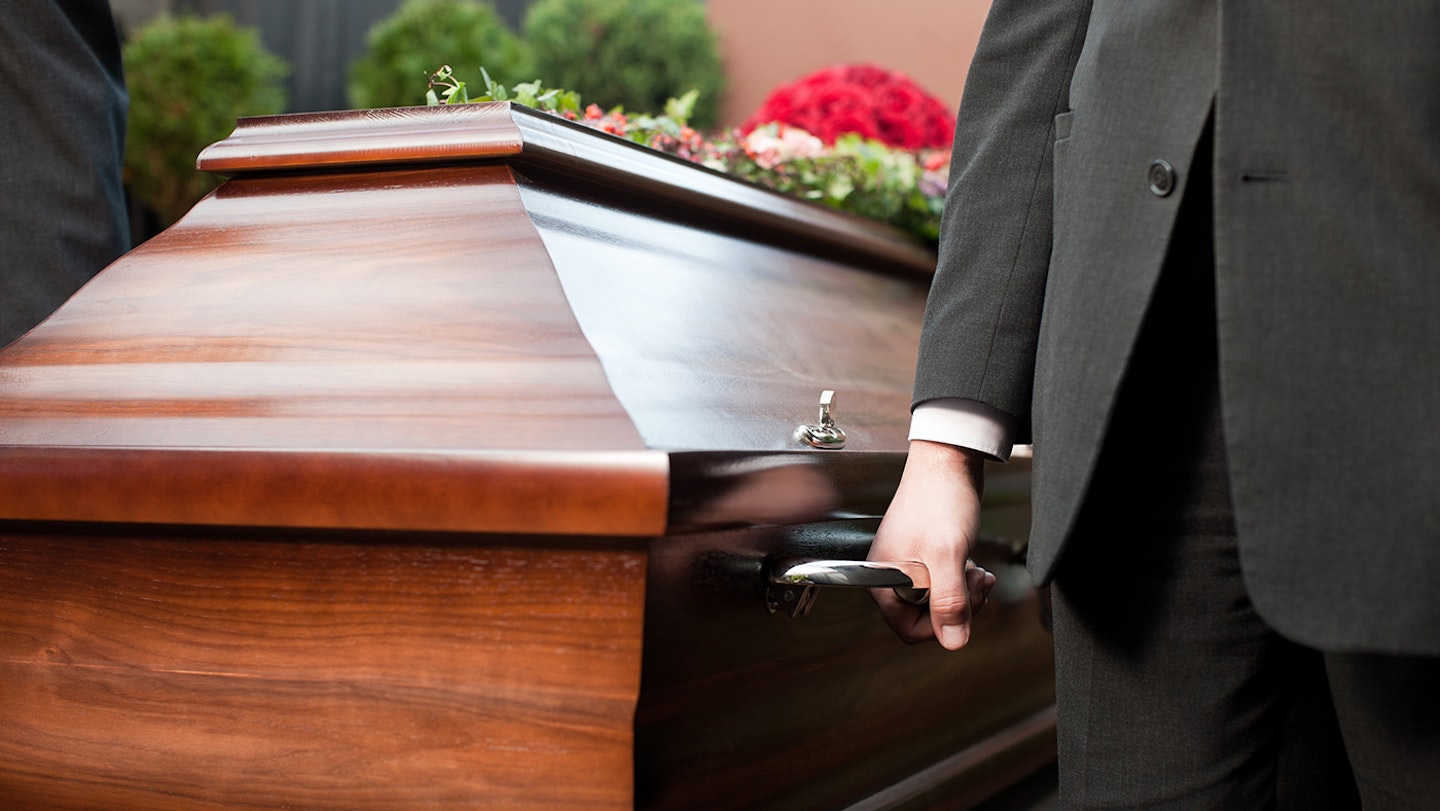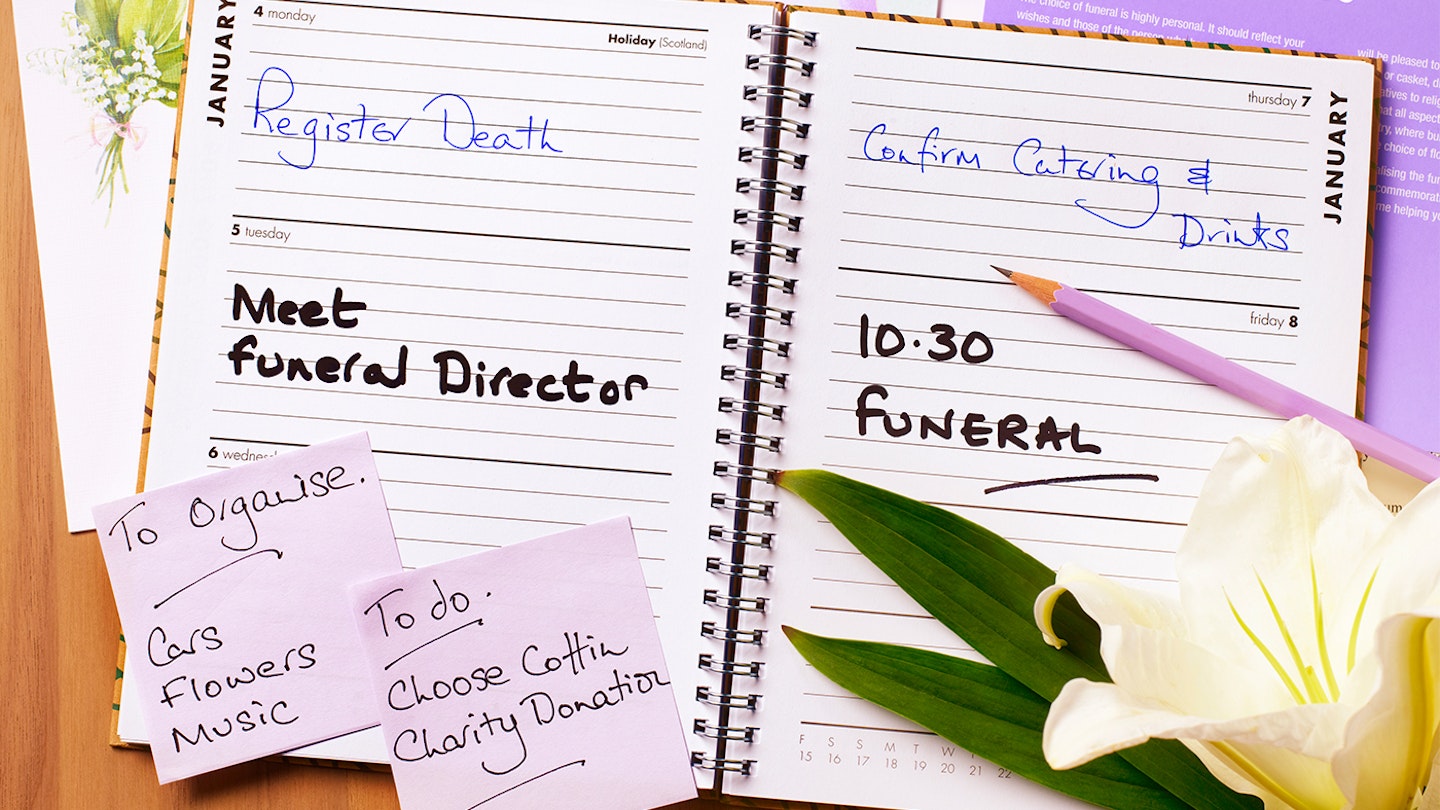Nobody ever wants to plan a funeral but sadly it's an experience many of us must go through to give our loved ones the send-off they deserve. It's an understandably overwhelming and sometimes stressful time, especially while still grieving, but our guide on how to plan a funeral aims to help make it as smooth and as easy to understand as possible.
What are the steps to planning a funeral?
The steps to arranging a funeral are broken down into sections. "Initially, a family will instruct a funeral director who will then offer them some guidance on what needs to be done first, such as registration," explains Emma Tipler, Funeral Director at Cooper & Son, part of C.P.J. Field. "We would then send some information on things to consider when planning a funeral so the family are prepared for what is discussed in the initial arrangement meeting. We then meet with the family and take them through everything around planning the day, from choosing a date and organising the transport, to selecting a coffin, flowers and orders of service."
How do I choose a funeral director?
This decision is completely at the discretion of the family. Some people often go by recommendations of friends or family who might point them in the direction of a funeral director they have used before, and they trust to recommend. "If you haven’t had to arrange a funeral before then my advice would be to do your research," Emma recommends. "Check prices for competitors and ensure that you are choosing the right funeral director that offers the services you wish. There is no rush in making the decision. Often, we will advise families to check other services in the area to make sure they are happy and reading online google reviews are a good indication of the kind of service you are likely to get."
How to choose between a burial or cremation
This is understandably a personal choice, often made by a person prior to them dying. One thing to take into consideration is what happens after the burial or cremation. "In both cases, there are additional things to be considered," says Emma. "For a burial, the family will need to bear in mind that a memorial may want to be arranged in the way of a headstone. In addition, some families choose to have a burial because there is a physical place to visit and reflect where they know they can still go and see their loved one. Likewise, with cremation, there will be ashes that will follow, and these also present a category of ways to be handled, including the choice of having ashes placed into a small keepsake such as an item of jewellery." You should consider what you and your family want long term in order to decide what is best.

How much do funerals cost?
A funeral can be as inexpensive as you want it to be. To have a meaningful goodbye, you don’t have to spend a lot of money.
"Any good funeral director will present a potential client with a full price list of services that can be offered. This ensures they are aware of any costs prior to committing and instructing a funeral director,' says Emma. "Usually, a standard price of professional fees will be charged by funeral directors for carrying out services associated with the funeral itself. This includes all the administration charges, the continued care and preparation of the deceased person to include them being brought into our care, the services of the funeral director on the day and the provision of the team required to do so."
Any additional costs are strictly down to you and your family and will be determined by what you choose, including things like coffin choice, flowers and newspaper notices.
Who pays for a funeral?
This is something that varies with each funeral. "Some people decide to put a lump sum of money aside which can be dealt with by a solicitor or even put straight into the bank. In other cases, some family and friends take care of the costs," Emma explains. "It is also possible to take out pre-paid funeral plans that cover the majority of the funeral costs prior to someone dying. Pre-planning a funeral can take the pressure off family members and friends and removes the burden of financial stress in the initial grieving period.
Is it possible to get help with funeral costs?
Organisations like the DWP will help towards costs for a funeral, should you need financial support in doing so. "Other charities associated with the armed forces will also offer financial support for funeral costs towards those who have served during their lifetime. Other supports such as the Children’s Funeral Fund for England will also help towards funerals for those under the age of 18."
Things to think about arranging for the funeral service
Families may want to consider things that are going to make the funeral unique to the individual, for a more meaningful goodbye. "Often this is apparent when looking at music choices, as this plays such a powerful part of the service," says Emma. "The content will often be determined depending on whether the person who died had a faith or religion. Poems and readings are used, as are eulogies, personal tributes, visual aids like photos and family-made videos, and people may also wish to consider doing a live webcast for those who are unable to attend the service. This was something particularly useful during the covid-19 pandemic."

What types of funeral services are there?
The type of funeral and the service itself has traditionally been influenced by religious or cultural beliefs. "The three most common types of funerals are burials, cremation, or a direct burial or direct cremation," Emma explains. "People can also have a celebrant who officiates the service mainly around the life lived but will also include hymns and prayers for those who wish to have them. This is the opposite of a humanist service, which is strictly no religious content at all."
Where can a funeral be held?
Funerals can be held pretty much anywhere. Just because a final place of rest would be a burial or cremation, you can have the service itself anywhere you wish (providing of course that permission is obtained). Again, the faith or religion of a family or the deceased person can also determine where exactly the service itself is held.
Who arranges funeral transport?
A funeral director will arrange the transport for the day itself. "Often the FD will have an established fleet of vehicles made up of hearses and limousines which can be used. However, if an alternative mode of transport is required like a horse-drawn carriage or even a motorcycle hearse, these too can be arranged by the funeral director," says Emma.
Meet the expert
Emma Tipler is Funeral Director for Cooper & Son, part of C.P.J. Field. Founded in 1690, C.P.J. Field is the UK’s oldest family-run funeral directors. With over 30 homes across southern England, the company prides itself on its family’s values, that no two lives are the same so no two funerals should be the same, as every life is unique. For more information, visit www.cpjfield.co.uk.
